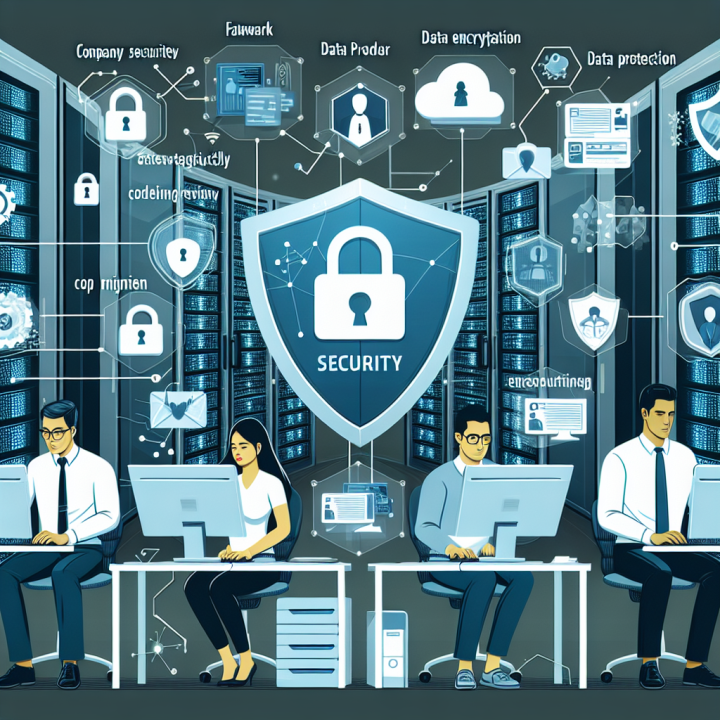
Cybersecurity is more than just a buzzword.
As a professional I consistently encounter the prevalent misconception that Cybersecurity is merely another trendy buzzword created to sell more business to business services. I felt the need to create this article to address some common myth and misconceptions regarding that and everyone should be aware of the current threat landscape.
Typically defined as the practice of protecting systems, networks, and data from digital attacks Cybersecurity is a continuing evolving field that adapts to new threats, emerging technologies, and shifting user behaviors. Modern digital attacks are usually aimed at accessing, changing or destroying sensitive information; extorting money from companies; or interrupting normal business processes.
With each passing year Cybersecurity emerges as a foundational component of a credible and sustainable business model, regardless of the size of the enterprise or the scope of individual professional endeavors. Here’s why It should be a pivotal concern for small business owners, freelancers, and professionals alike:
Data Breach Protection: Small businesses and independent professionals often handle customer data that may include personal information, payment details, and confidential correspondence. A data breach can lead to legal consequences, loss of customer trust, and significant financial impact from both rectification costs and loss of business.
Intellectual Property Safeguarding: For freelancers and innovators, intellectual property – be it a business idea, creative work, or proprietary information – is the lifeblood of their enterprise. Cybersecurity measures protect against theft and unauthorized duplication, maintaining the originality and value of their work.
Business Continuity: Threats such as ransomware can halt business operations instantly. Without the appropriate defenses, recovering from such attacks could be costly and time-consuming, with some businesses never fully recovering.
Reputation Management: In an era where reputation can be one of your most valuable assets, a single incident can tarnish a professional's image or a business's brand. Clients and partners value reliability, and robust security practices contribute significantly to that perception.
Legal and Regulatory Compliance: Many sectors are subject to data protection regulations. Small businesses and independent professionals must comply with laws like GDPR, HIPAA, PCI/DSS or other local data protection laws, failure of which can result in hefty fines and penalties.
Competitive Advantage: A strong commitment to security can serve as a differentiator in the market. Customers are more likely to engage with a small business or freelancer who can demonstrate that their data will be secure.
Economic Protection: Cyber incidents can result in significant financial loss from the theft of corporate information, disruption of trading, and the cost of repairing systems and networks. For small businesses and freelancers, where budgets are often limited, these costs can be debilitating.
Personal Security: For professionals, a cyber-attack could compromise not only business assets but also personal information and finances. Cybersecurity is essential for protecting against identity theft and fraud.
Client Trust and Liability: If a client's data is compromised due to your inadequate security measures, they may seek compensation for damages. Maintaining robust Cybersecurity measures helps mitigate this risk and solidifies trust.
Future-proofing Your Business: As technology advances and the digital economy grows, so do the threats landscape. Addressing Cybersecurity proactively positions a business or individual to adapt to new technologies more safely and securely.
Myth Busting:
Myth: Cybersecurity is a passing trend.
Reality: With the increasing dependency on digital platforms and the Internet of Things (IoT), the need for robust security measures is more significant than ever. The proliferation of smart devices, cloud services, and high-speed internet has created a vast playground for Cyber-criminals.
Myth: Only large organizations need to worry about Cybersecurity.
Reality: Security is not exclusive to large enterprises. Small and medium-sized businesses are often targets for Cyber-criminals because they may lack the robust security protocols that larger companies implement. The notion that smaller entities aren't worth the attack is a dangerous misconception that can lead to devastating breaches.
Myth: Cybersecurity is solely about technology.
Reality: While technology is the backbone of Cybersecurity, human factors play a crucial role. A system is only as strong as its weakest link, and often, that weakness lies in human error or oversight. Regular training, awareness programs, and fostering a culture of security-first are as essential as the software and hardware protections in place.
Myth: Strong passwords are enough to keep us safe.
Reality: While strong, unique passwords are an important first step, they are not a panacea. Multi-factor authentication, encryption, and secure network practices contribute to a layered defense strategy that can withstand various attack vectors.
Cybersecurity is a dynamic, ever-present aspect of our interactions with technology. Its terminology may be trending on professional platforms, but beneath this facade of a buzzword lies a complex and critical industry striving to safeguard our digital livelihoods.